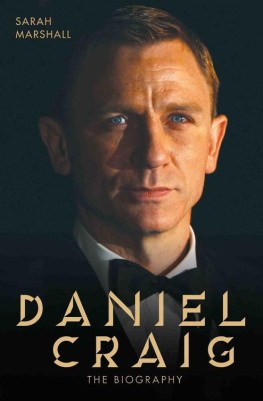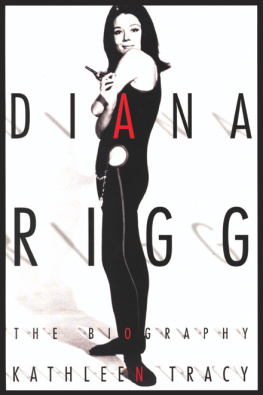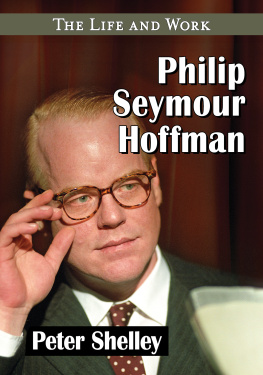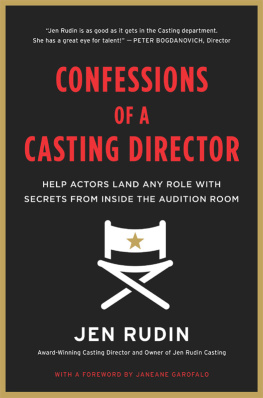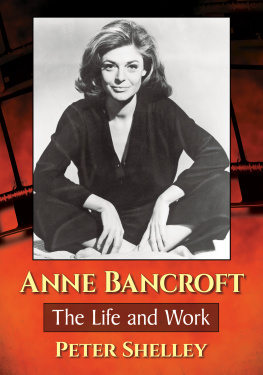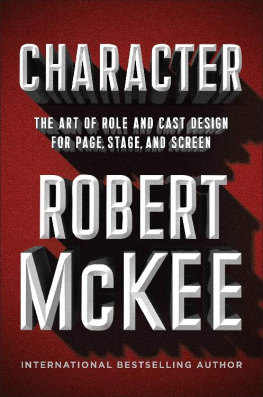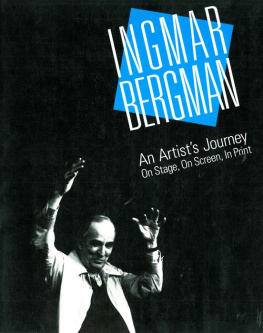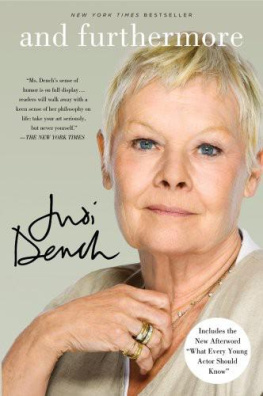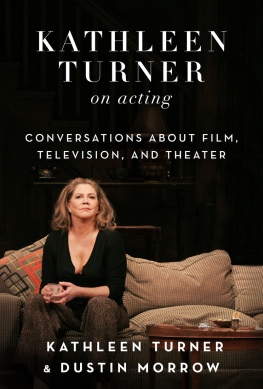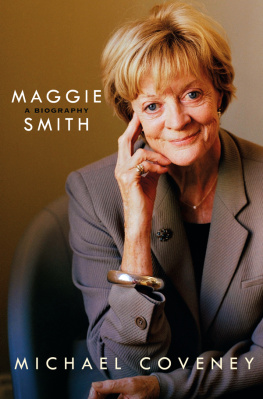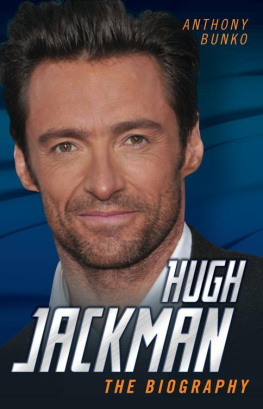The author and publisher wish to make clear that this is an unofficial biography and that the subject of this book, Tom Hiddleston, has in no way participated with the writing.
I t must be every parents ambition to give his or her child a head start in life, setting them up emotionally, intellectually and financially for the years ahead. Drawing on a lifetime of earned experiences, ageing adults hope their energetic offspring will not only match their own achievements, but better them realising long-held dreams with the benefit of youthful enthusiasm.
The Hiddleston family was no different.
An enthusiastic new father, James Norman Hiddleston hoped his brood would have access to the best opportunities in life. His ambitions were made greater by his own humble upbringing. Born in Glasgow, hed grown up in a working-class environment. His father was employed by the local shipyard and worked long hours to earn enough money to feed his family. The work was physically draining and often tough. From very early on, James knew this was a life he didnt want to repeat. He had much bigger dreams and he knew his only escape route came in the form of education.
Determined to break away from the social confines set by earning power and an antiquated British class system, he put every ounce of his energy into study. While his friends were out kicking footballs in rubbish-strewn backstreets or skipping classes to smoke sneaky cigarettes behind the bike sheds, James was brushing up on his arithmetic and reading feverishly in an effort to improve his vocabulary.
In his teens he landed a job in a local butchers. The extra cash would help pave the foundation for his future studies. Between the classroom and workplace he also managed to fit in time to do his homework. He was often exhausted, but knew there was no time to rest: commitment and diligence underpinned his persona.
His efforts paid off. Following a stint at the local grammar school, he earned himself a place at Newcastle University. By all accounts James Hiddleston was a self-made success story. Hunger and fierce determination had enabled him to secure a foothold on a social ladder that had always seemed beyond reach. Now the future ahead of him suddenly seemed much brighter.
Despite these advances he never once looked down on his parents. After all, they had dedicated their lives to caring for their family. In those days it had been about day-to-day survival: earning enough money to put food on the table was the goal. But the world was changing. A new middle class was fast emerging and with it ambitions were growing. James Hiddleston was part of a new generation, but he would never forget his past. That was one lesson greater than any learned in the classroom, which he was keen to pass down to his own children.
At the extreme opposite end of the spectrum Diana Patricia Servaes had a very different upbringing. The descendent of several military greats, with roots in England, Wales and Germany, her family tree gleamed with honours and medals. As her contemporaries would say, she came from good stock. Her grandfather, Ronald Vestey, had been a vice admiral in the British Navy, a fact the family recounted with immense pride, and her great grandfather was Sir Edmund Hoyle Vestey, chairman of the Blue Star Line, one of the great shipping companies. The Vestey family seat is 6,000-acre Stowell Park estate in the Cotswold Hills in Gloucestershire.
Along with wealth, Diana would also inherit an appreciation of the arts and culture. Alongside her studies, she learned to play the organ, a hobby she would continue into later life. Her parents ran the prestigious Aldeburgh Festival. She grew up on a diet of opera and theatre so it was perhaps inevitable that she would end up doing a job connected to those fields. She trained as a stage manager, a career that would allow her to immerse herself in the world she loved.
On paper, James Hiddleston might not have appeared to be her ideal suitor, but this working-class Scot with great ambitions was the man who eventually charmed and married her.
The couple both lived in London and decided to set up home together in Wimbledon, a leafy suburb in the capitals southwest. The theatres and playhouses of the West End were within easy reach, yet the smoke and pollution of the busy city centre was far enough removed. Following the birth of their first child, a girl they named Sarah Alexandra, in 1979, Diana fell pregnant with a boy. Thomas William Hiddleston was born on 9 February 1981.
Reaping the rewards of a well-spent youth, James was earning a reasonable income. His salary allowed his wife to give up work and concentrate all her efforts on motherhood. Diana would stay at home and play music to her children.
I have a very happy memory, recalled Tom years later, when talking about his childhood. My mum used to play the piano for me and my older sister when we were very, very small, about three or four.
There was no furniture in the living room of the new house that we had moved into so my sister and I would dance around the living room. Its one of my earliest memories and its a very happy one. I was just dancing to my mum playing the piano and she had these three things she used to play.
There were times when Diana missed the buzz of the theatre world. Following a stint as an arts administrator, she had landed a job as a casting director for an opera company but after some discussion with her husband, she decided it was time to divert her attention to a far more rewarding career. After Tom, she gave birth to a second daughter, Emma Elizabeth, in 1986. Looking after the family became a full-time occupation.
Meanwhile things were looking up for James. In the early nineties he was offered a position as managing director of a pharmaceutical biotechnology company with links to Oxford University and so it was decided the family would pack up their belongings and relocate to Oxford.
James found the prospect of the new role incredibly stimulating, acting as a point of connection between the worlds of business and academic science. The salary was equally appealing, and allowed him to give Sarah, Tom and Emma the best education possible. Of course he would make sure his children didnt take anything for granted and constantly reminded them of his own humble upbringing, emphasising just how lucky they were to have such opportunities. He was determined to give them the best educational foundation possible for whatever career they chose to pursue in later life.
Diana, meanwhile, was channelling her creative energies into her children. In particular, her son, Tom, had developed a fondness for theatre. It was an interest she was eager to nurture. Tom and his sisters were forever inventing plays and acting out different roles.
When I was a child my sisters and I and my cousins used to write plays in the summer for my parents, he later recalled. This was in the years before Xbox and PlayStation and all that stuff so we just wrote and we just played. And at the end of the summer, wed perform them for our parents. It always felt like such a huge deal, but it was literally five people and a dog in the audience in the back garden. There was one amazingly innovative one when I look back on it, and it didnt come from me.
There was one called TV Travelers, which was about two kids watching TV and they get pulled in and its kind of like Dungeons & Dragons or The Purple Rose of Cairo. And suddenly, they were traveling around in the world of the TV, which we thought was hugely creative at the time. And we did a version of Cinderella. It was very innocent and really cool.
Thats when I started acting. My sisters and my eldest cousin, Zoe, would write the play. My cousin Matt would make the stage. He was really good with his hands, so hed make swords, a ship, the sea and all that stuff. I was always the bad guy for some reason. I guess nothings changed. I think Im pretty sure I played Hook at one point; we did our own version of


